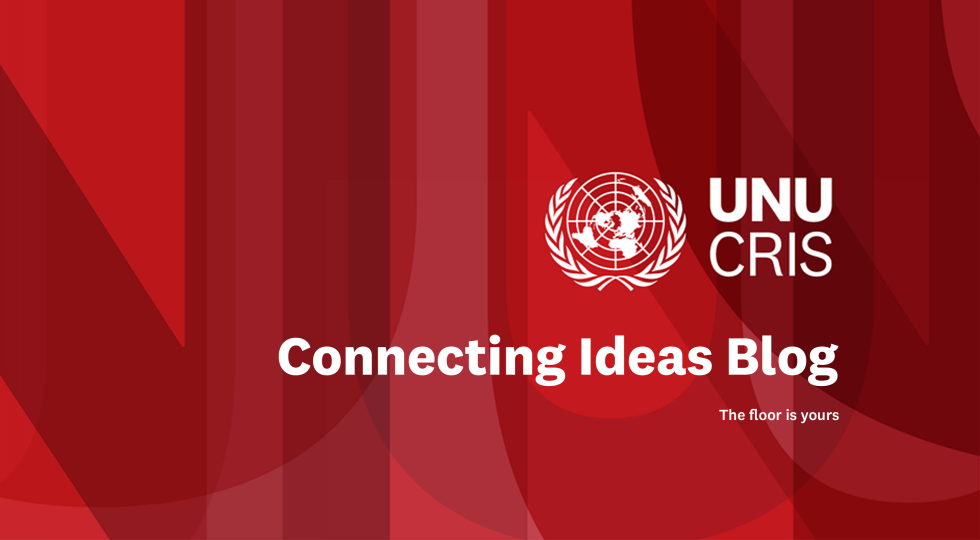The Next UN Secretary-General? Latin America, Gender Equity, and the Fault Lines of Global Governance

Pía Riggirozzi
Head of the Politics and International Relations Department, University of Southampton
16 May 2025 | #25.05 | The views expressed in this post are those of the author(s) and may not reflect those of UNU-CRIS.
As the tenure of António Guterres gradually nears its end, conversations around the next United Nations Secretary-General are heating up — and with them, a familiar blend of diplomatic dance, political theatre, and whispered calculations of fairness and power. But this time, something feels different. Could 2026 finally be the year a woman leads the United Nations? And could that woman come from Latin America?
The Unwritten Rules of the Game
While there’s no formal rule mandating regional rotation for the role of UN Secretary-General, the practice has functioned like clockwork for decades. From Kofi Annan (Africa) to Ban Ki-moon (Asia) to António Guterres (Europe), a loose geographic rotation has sought to ensure inclusivity — and legitimacy — in global leadership. Logically, this places Latin America and the Caribbean (LAC) in a favourable position to put forward a candidate. After all, the region hasn’t held the top UN job since its founding, and for a global organization that touts universality, that absence is striking.
And this expectation also aligns with a broader push for equity and inclusion in international leadership. A Latin American woman would not only respond to long-standing calls for regional rotation but would also reflect urgent demands for gender parity in multilateralism. After 78 years of exclusively male leadership, it is time for a change that speaks to the diversity of our global society.
But logic isn’t always the strongest currency in international diplomacy. Realpolitik still plays a central role — the Security Council’s permanent members, with their veto power, retain disproportionate influence over the process. In today’s fragmented, polarized geopolitical climate, even regional rotation can fall victim to great power rivalry and behind-the-scenes dealmaking.
A Latin American Woman for the UN?
This leads to a crucial point. This could — and should — be the moment for a woman from the Global South to lead the United Nations. After regional rotation yet exclusively male leadership, the case for gender parity is undeniable. But in global governance, identity alone is never enough — a viable candidate must also navigate the labyrinth of state interests, ideological divides, and elite networks.
The Latin American region is not short of talent. Rebeca Grynspan of Costa Rica, current head of UNCTAD, brings political acumen and diplomatic gravitas. Michelle Bachelet of Chile, with her history at UN Women and the UN High Commissioner for Human Rights, commands enormous credibility in the fields of gender and rights — although her tenure at the UNHCHR has not been without controversy, particularly regarding China’s human rights record. Other prominent Latin Americans, like Rafael Grossi, Achim Steiner, and Juan Manuel Santos, also bring significant credentials — but their candidacies might struggle to align with growing global demands for both gender and regional representation.
Two other names warrant close attention. Alicia Bárcena, now Mexico’s Foreign Minister and former Executive Secretary of ECLAC, offers a formidable combination of regional expertise and sustainable development leadership. And Mia Mottley, Prime Minister of Barbados, has captured the world’s attention with bold advocacy on climate justice and financial reform. Her Bridgetown Initiative to reform the Bretton Woods institutions exemplifies visionary leadership from the Global South — and crucially, a much needed jolt to the status quo from a small island state often sidelined in international diplomacy.

Can CELAC Deliver a Unified Candidate?
Enter the regional card: CELAC. Brazilian President Lula da Silva has openly called for CELAC to back a single woman candidate, positioning this as a rare moment of convergence between gender equity and Latin American solidarity. But here lies the catch. While CELAC has rhetorical power, its capacity to act cohesively is limited. Latin America remains ideologically divided and overlapping loyalties hinder cohesive action.
Still, a unified regional endorsement — particularly if it centres on a woman — could be a game changer. It would not only bolster a candidate’s legitimacy but send a strong message that the Global South can lead on its own terms. Yet the hurdles are many: rivalries between major countries like Brazil, Mexico, and Argentina, varying allegiances to global powers, and divergent domestic priorities all threaten to fragment the effort before it begins.
Beyond Rotation: A Moment for Reimagining Global Leadership
Ultimately, this is not just about whose “turn” it is. The selection of the next UN Secretary-General is a mirror reflecting the global system’s deepest dilemmas: persistent inequalities, weakened trust in multilateralism, climate breakdown, and widespread disillusionment with elite leadership.
Appointing a woman from Latin America or the Caribbean would not just be a symbolic gesture — it would be a strategic step toward re-legitimising the UN, renewing global trust, and opening space for more inclusive, justice-oriented governance. Leadership from the Global South, particularly from those historically marginalised in international diplomacy, could bring the creativity, empathy, and courage our current moment demands. This is a strategic moment — and potentially a transformative one.
Whether this happens depends not just on the strength of individual candidates, but on the political will to reimagine who gets to lead — and what kind of leadership the world truly needs and is willing to bring in.
